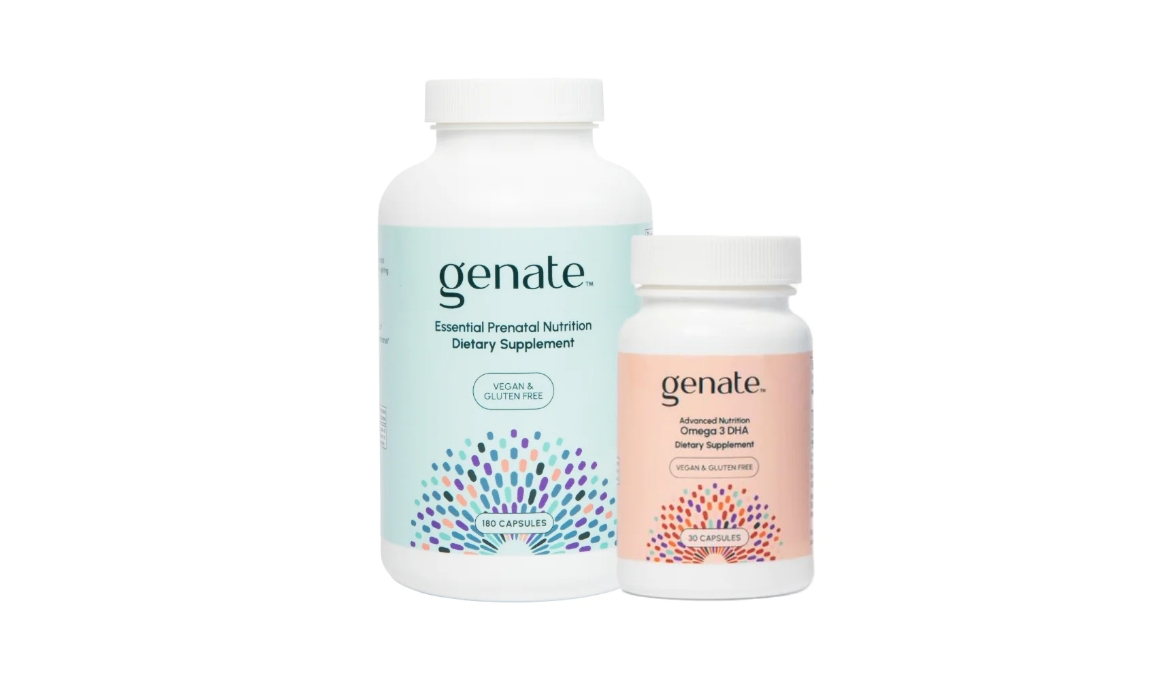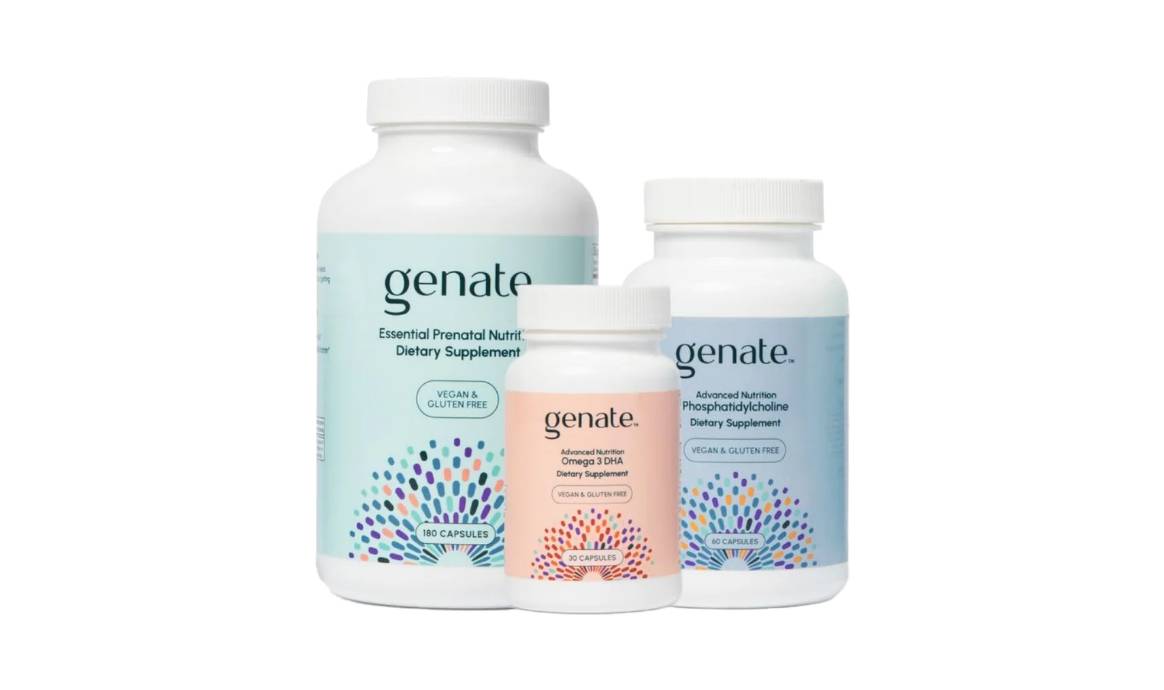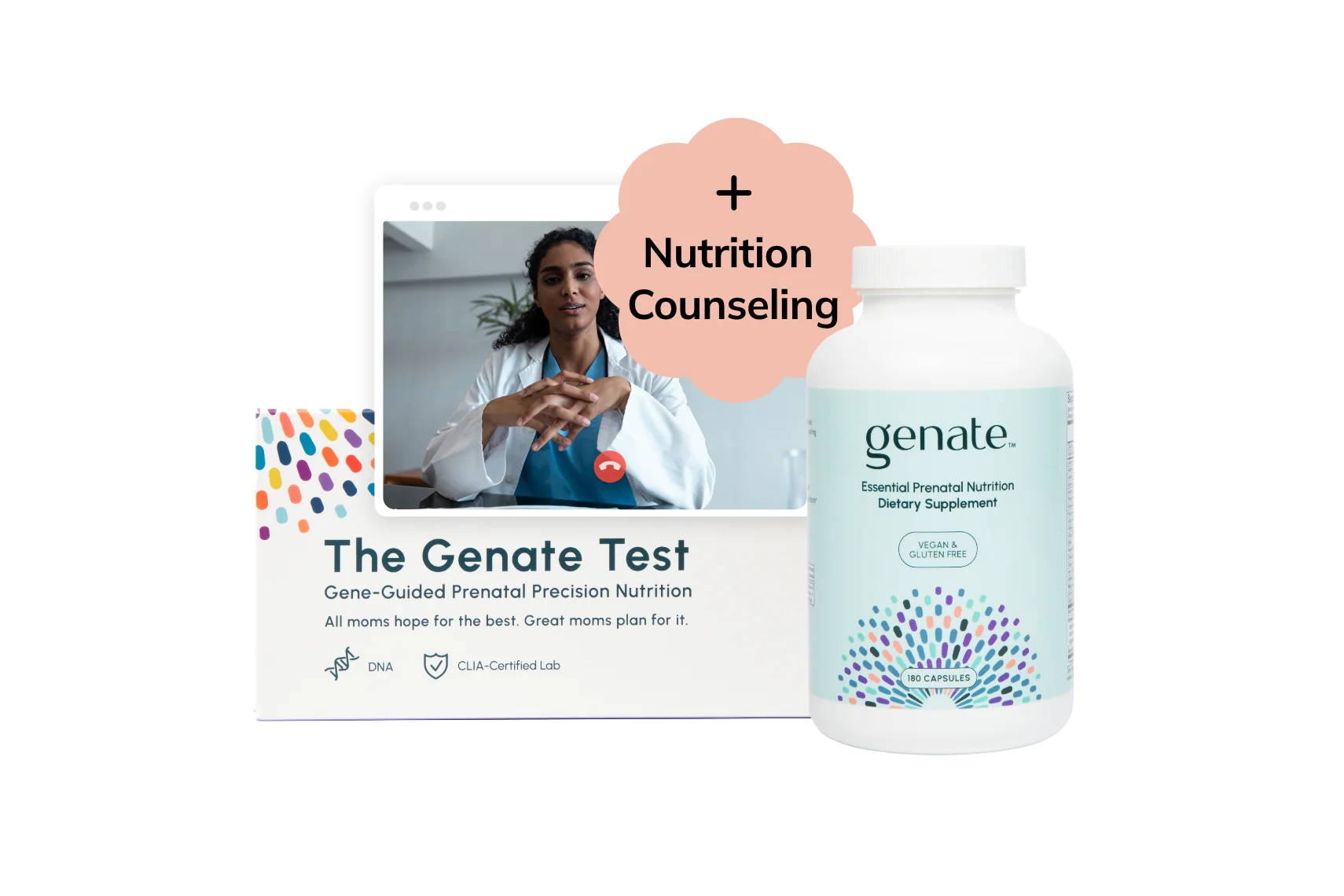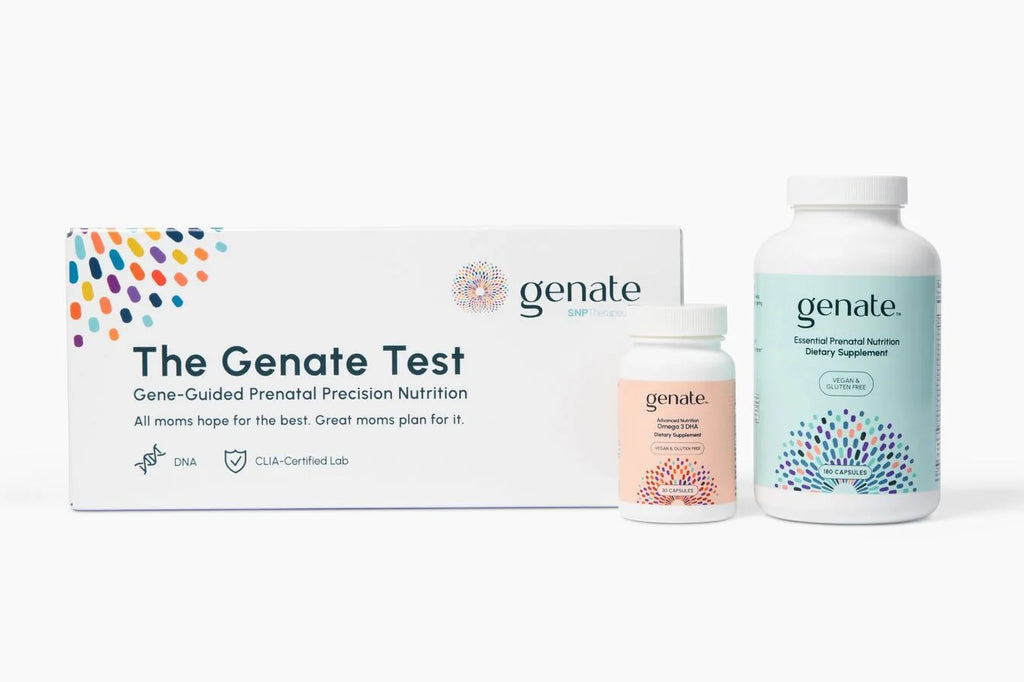Good nutrition is essential for every stage of your baby’s growth and development. But the efficiency with which your body metabolizes nutrients is partly determined by your genes, and common genetic variants can affect the metabolism of one-carbon nutrients that are critical for the development of your child’s brain and spinal cord. Genate Essential Prenatal Nutrition is a multivitamin formulated from academic research that provides women with a formulation optimized to support their baby’s cognitive development. It includes the one-carbon nutrients choline, betaine, methylfolate, and B vitamins that many women have trouble metabolizing and/or don’t get enough of in their diet.

MISCELLANEOUS
Optimal Lactation Nutrition
by Genate • March 18, 2023 • 3-4 minute read
As a breastfeeding mother, it's important to make sure you are eating healthily and getting the necessary nutrients during your pregnancy. Optimal nutrition during lactation is not only beneficial for your baby, but it also helps to reduce your risk of various health conditions Unfortunately, current Dietary Guidelines suggest that many women may not be optimizing their diet effectively and could benefit from increasing the consumption of some important nutrition. So what should you focus on? Here is a guide on some critical nutrients to make sure that both you and your baby's needs are met.
Discover the genetics that affect your baby's cognitive development
Calories: Your caloric requirements are based on age, metabolism, and activity levels, however a breastfeeding mother should have a daily caloric intake of around 2200 to 2400 calories. These calories should be sourced from whole grains, lean proteins, fruits, vegetables, and low-fat dairy, but limit the amount of added sugars, sodium, and saturated fat you consume.
Omega-3 Fatty Acids: Different types of omega-3 fatty acids like DHA (docosahesxaenoic acid), ALA (alpha-linolenic acid), and EPA (eicosapentaenoic acid) are all essential for the growth and development of your baby. The daily consumption of DHA when breastfeeding can pass on these benefits to your baby and continues to be accumulated in the brain during the first two years of their life. It is recommended that you get 1.3 grams of omega-3 fatty acids every day. Generally, it is recommended that you get 1 gram of EPA omega-3, but you may need more than 300 milligrams of DHA due to metabolic inefficiencies and increased demand from the baby. You may take a genetic test to help identify if you require extra DHA.
Choline: An adequate intake of choline while breastfeeding is essential to the brain and spinal cord development of your baby. You should strive for around 550 milligrams of choline daily. Research has proven that consuming 930 mg of choline during the third trimester of pregnancy can aid attention and cognitive skills up to age 7. Choline can be found in food sources like eggs, meat, beans, peas, lentils, and seafood. Those with metabolic inefficiencies or an inability to activate choline production may need to increase their choline intake. A simple genetic test can help determine if this is the case.
Iodine: Breast milk is the sole source of iodine for babies who are exclusively breastfed, so it is critical to ensure your body has adequate amounts of iodine. This helps regulate your baby's thyroid and supports their neurological and skeletal development. It is recommended to get 290 micrograms of iodine daily while lactating, and it can be found in dairy, eggs, seafood, and salt.
Folate: Folate requirements are higher while breastfeeding, but not as much as when pregnant. To meet these needs, 500 micrograms of folate should be consumed every day. This can be obtained from dark leafy green vegetables, fruits, fruit juice, nuts, beans, seafood, eggs, dairy, meat, and poultry. Up to 50% of women have difficulty metabolizing folic acid into usable forms of folate, so if you are using a supplement with folic acid, you may want to get a genetic test to identify if you need to supplement with other forms of folate in order to provide your baby with enough.
Alcohol: To be on the safe side, abstain from drinking alcohol while breastfeeding. However, if you do choose to drink, make sure to wait at least two hours before breastfeeding or pumping breast milk.
This article is not intended as medical advice to treat or diagnose any health condition but rather as educational health information for the general public. It should not be used as a substitute for individualized medical care from your healthcare provider.
Shop the Article
Save 23% today!
Genate Essential Prenatal Multivitamin + Advanced Omega-3 DHA Package
Bundle to increase savings and provide the foundational nutrients needed for optimal health and development.
From $72 per month
Save 23% today!
Comprehensive Prenatal Support Package
Genate Essential Prenatal Multivitamin + Advanced Omega-3 DHA + Phosphatidylcholine
Our most comprehensive bundle - you’ll receive our Essential Prenatal Multivitamin, Advanced Phosphatidylcholine, and Advanced Omega-3 DHA.
From $110 per month
Save 30% today!
Comprehensive Prenatal Nutrition Bundle
Buy the Genate Test and a nutrition counseling session with a Genate registered dietitian, and receive a 30-day supply of the Genate Essential Prenatal Multivitamin FREE. Purchase includes a 90-day prenatal multivitamin subscription at our best monthly price.
$309
Take the Genate Quiz
Take our Nutrition Quiz to learn more about your nutrition journey.
Read Our Latest Articles
Frequently Asked Questions
What are the benefits of my baby getting the proper nutrients?
What are one-carbon nutrients and fatty acids, and why are they important?
One-carbon nutrients and fatty acids are critical for brain and spinal cord development during pregnancy and through the first two years of life. Although all nutrients are important, the one-carbon nutrients choline, folate, betaine, and B vitamins, along with the omega-3 fat DHA, provide the building blocks for proper growth of your developing baby's brain. Research at Cornell and Harvard universities has shown cognitive benefits for children born to mothers who received increased levels of one-carbon nutrients during pregnancy, demonstrating that optimal nutrition during pregnancy can have lasting effects for your baby.
If I buy Genate nutrition supplements, do I still need to take the test?
Genetic testing is a personal choice, and only you can decide what’s best for you and your baby. But the Genate Test is a powerful tool for optimizing your nutrition status, as it identifies genetically-caused metabolic inefficiencies that may influence your body’ ability to make and use the nutrients critical for your baby’s cognitive development. If you have SNPs in any of the nutrient pathways tested, your Genate Report will provide personalized recommendations for optimizing your nutrition. Our registered dietitians can show you how to fill in the gaps with foods and supplementation, if needed, to make sure you’re getting the nutrition you and your baby need.








